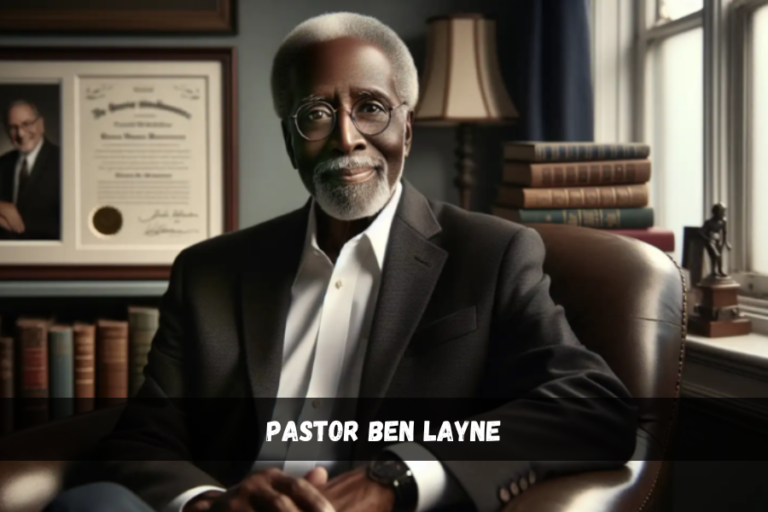Love What You Have, Before Life Teaches You to Love — Tymoff
Introduction
The poignant quote, “Love what you have before life instructs you to love – Tymoff,” stands as a profound call to value the present and treasure our current blessings. Credited to Russian philosopher Ilya Tymoff, this statement encapsulates the core of living a meaningful life. It urges us to explore its deeper meanings, various interpretations, and the significant implications it holds for our daily lives.
Love What You Have, Before Life Teaches You to Love — Tymoff
The feeling of appreciation isn’t just fleeting; It is a profound mentality that has the power to alter one’s life. Let’s investigate the significance of cherishing what we have in the present moment rather than waiting for circumstances to compel gratitude.
By embracing the present time and place, and perceiving the endowments in our regular routines, we can develop a feeling of happiness and satisfaction that rises above outer circumstances. Joy frequently dwells in the basic minutes, yet a considerable lot of us ignore them in quest for more terrific desires.
This article digs into the appeal of straightforwardness and talks about how savoring life’s little joys can prompt significant satisfaction. Re-discovering the joy of everyday activities, such as taking in a peaceful cup of coffee or watching the sun set, is the key to true contentment.
The Origin & Evolution of “Love what you have, before life teaches you to love — Tymoff”
The concept, often credited to Tymoff as “Love what you have before life teaches you to love,” has garnered attention for its emphasis on gratitude, contentment, and mindfulness. Although its precise origins remain somewhat unclear, this philosophy resonates broadly due to its profound simplicity and universal relevance.
Tymoff proposes that life frequently teaches us the value of appreciating our blessings through adversity and challenges. Rather than waiting for difficult circumstances to prompt us to be thankful, he advocates for actively nurturing appreciation and love for our present circumstances.
Meaning Behind the Quote
Fundamentally, this statement advocates for a life enriched by gratitude, encouraging people to actively value and foster the positive elements in their lives. Whether it’s relationships, health, opportunities, or simple pleasures, the message is clear: cherish them. It emphasizes that genuine gratitude often arises from understanding the value of something only after it’s been lost. In doing so, the statement underscores how appreciation profoundly enhances overall well-being.
The Relevance in Today’s World
In today’s fast-paced, consumer-driven society, consumed by materialism and constant social comparison, Tymoff’s philosophy provides a refreshing counterbalance. Here’s why it holds particular significance:
Countering Materialism: We are continually presented to messages in the present society that liken joy with material belongings. Tymoff’s philosophy, which places an emphasis on the intangible pleasures of life such as relationships, experiences, and personal growth, challenges this idea.
Combating Social Comparison: We are continually presented to painstakingly chosen pictures of others’ apparently unspoiled lives via online entertainment stages. Jealousy and disappointment are energized by this, so it’s basic to embrace cherishing what we have and seeing the blemishes taken cover behind the exterior.
Nurturing Mental Health: The constant need for more can cause anxiety, stress, and hopelessness. We can altogether work on our psychological wellness and discover a genuine sense of harmony in the present time and place by rehearsing appreciation and happiness.
Enhancing Relationships: Our relationships are bolstered when we acknowledge and appreciate the people in our lives. Tymoff’s way of thinking reminds us to appreciate our friends and family and worth the associations we have, as opposed to underestimating them.
Interpretation from Various Perspectives:
While commonly credited to Tymoff, this sentiment echoes similar wisdom found across various cultural and philosophical teachings. This universality suggests that the essence of appreciating what we have is a timeless and multi-faceted truth.
Individual Application
Reflecting on the statement prompts us to consider what “having” truly means on a personal level. How can individuals effectively demonstrate love and appreciation for the distinctive aspects that define their lives? This introspective approach enables a deeper appreciation of the statement’s significance at an individual level.
Possible Criticisms
Critics may argue that the statement oversimplifies life’s complexities. They might suggest that personal growth and introspection, alongside experiences of loss, contribute to our appreciation of what we possess. Moreover, it’s crucial to recognize that systemic inequalities can hinder individuals’ ability to cultivate love and gratitude for life’s blessings, as not everyone has equal access to its opportunities and advantages.
Benefit of Love What You Have, Before Life Teaches You to Love
Love is a significant feeling that can significantly influence our lives, giving pleasure, satisfaction, and happiness. However, it’s similarly critical to see the value in what we have even before life trains us to do as such. We are able to recognize the small things that we frequently overlook with this mindset, cultivating gratitude and revealing how much we have to be grateful for. This change in context can prompt a more prominent feeling of bliss and satisfaction.
Valuing what we have begins with recognizing the seemingly insignificant details — a friend or family member’s grin, the glow of daylight on our skin, the solace of home. A sense of well-being and happiness can be cultivated by taking the time to appreciate these moments. In addition, loving what we have helps us avoid falling into the trap of comparison, in which we frequently compare ourselves to other people and become dissatisfied with our own circumstances. By embracing and loving what we have, we can relinquish this impeding attitude and spotlight on our own way to bliss.
A sense of contentment and gratitude are also fostered when we value what we have. We are more likely to appreciate the little joys and feel grateful for our blessings when we shift our focus from what we lack to what we have. This can prompt a really satisfying and fulfilling life. Additionally, being content with what we have can encourage others to do the same. At the point when we offer thanks for our gifts, it can urge others to stick to this same pattern, making an expanding influence of energy and appreciation in our own day to day routines and the existences of everyone around us.
Simply put, having a mindset that values what we have benefits both our own well-being and the lives of others. We cultivate gratitude, joy, and a sense of purpose by valuing and valuing what we have. In this way, we should pause for a minute to esteem and value what we have before life trains us to do as such.
The Gift of Gratitude: Finding Joy in the Present Moment
A potent antidote to our busy lives’ constant quest for more is practicing gratitude. We cultivate a sense of happiness and contentment that transcends external circumstances by actively appreciating the abundance and blessings that are already in our possession. There’s continuously something to be appreciative for assuming we set aside some margin to see it — whether it’s the affection for our friends and family, the excellence of the normal world, or the straightforward delights of regular day to day existence.
Appreciation as an Everyday Practice: Developing Consistency
Commitment and consistency are necessary for cultivating gratitude. We look at practical ways to incorporate gratitude into your daily routine in this section. Practicing gratitude on a regular basis can have a long-lasting positive impact on your daily life. Keeping an appreciation diary, taking part in day to day certifications, or communicating appreciation to others are powerful methods for accomplishing this.
Stories of Transformation Through Appreciation
The transformative power of gratitude is highlighted by personal stories that provide a vivid illustration of how a shift in perspective can result in profound transformations. A woman who began expressing gratitude on a daily basis after years of being dissatisfied in both her professional and personal lives is one inspiring example. She was able to regain a sense of joy and purpose that had been obscured by her previous focus on what was lacking thanks to this simple habit.
Another strong story includes a couple near the very edge of partition who chose to devote customary time every week to communicate appreciation for one another. They not only rekindled their relationship but also increased the depth of their connection in ways they had never imagined. These accounts exhibit how appreciation can possibly recuperate, change, and upgrade our lives.
We open ourselves up to greater happiness, stronger relationships, and an overall sense of well-being that enriches every aspect of our lives by consciously choosing to appreciate and celebrate what we have.
Conclusion
In conclusion, “Love what you have before life teaches you to love – Tymoff” encapsulates a profound philosophy that urges us to cherish and appreciate our present blessings. It emphasizes the transformative power of gratitude and mindfulness, offering a counterbalance to the materialistic and comparison-driven tendencies of modern society. By valuing the simple joys and relationships in our lives, we can cultivate lasting happiness and fulfillment. This mindset not only enhances our personal well-being but also strengthens our connections with others, fostering a sense of community and empathy.
FAQs
1. Who is Ilya Tymoff, and why is he credited with this quote?
Ilya Tymoff is often credited with the quote “Love what you have before life teaches you to love.” He is recognized for his philosophical insights into gratitude, mindfulness, and the appreciation of life’s blessings.
2. What does the quote mean by “before life teaches you to love”?
The quote suggests that rather than waiting for hardships or challenges to force us into gratitude, we should proactively appreciate and value what we have in the present moment.
3. How can one apply this philosophy in daily life?
To apply this philosophy, one can start by practicing gratitude daily, reflecting on and appreciating the positive aspects of life, such as relationships, experiences, and personal growth.
4. Why is gratitude important according to Tymoff’s philosophy?
Gratitude, according to Tymoff, enhances overall well-being by fostering contentment, reducing stress, and strengthening relationships. It encourages a focus on what one has rather than what is lacking.
5. How does this philosophy relate to modern challenges like materialism and social comparison?
Tymoff’s philosophy provides a counterbalance to materialism and social comparison by emphasizing the value of intangible joys and personal relationships over material possessions and external validation.
6. Can practicing gratitude really enhance happiness?
Yes, numerous studies have shown that regular practice of gratitude can enhance happiness by shifting focus towards positive aspects of life and fostering a sense of appreciation for one’s blessings.
7. Is there any criticism of Tymoff’s philosophy?
Critics may argue that the philosophy oversimplifies life’s complexities or overlooks systemic inequalities that affect individuals’ ability to cultivate gratitude. However, the philosophy remains widely embraced for its practical benefits in everyday life.
Stay informed with the latest news and updates on timescycle.com






